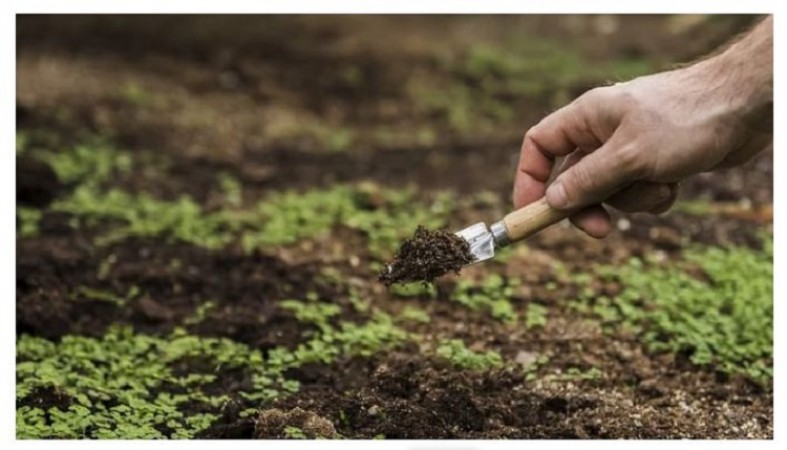
A groundbreaking development in agriculture emerges as scientists unveil an extraordinary electrically conductive "soil" that significantly bolsters crop growth. This pioneering method, known as hydroponics, has resulted in a remarkable 50% increase in the growth rate of barley seedlings within a mere 15 days.
Experts from Linkoping University in Sweden led this groundbreaking initiative. Dr. Eleni Stavrinidou, an associate professor at the university, highlighted the urgency of meeting escalating global food demands amidst the challenges posed by a burgeoning population and the relentless impact of climate change.
"With hydroponics, we can cultivate food even in urban settings under highly controlled conditions," explained Dr. Stavrinidou, underscoring the versatility of this innovative approach.
The team's revolutionary electrically conductive cultivation substrate, dubbed "eSoil," was meticulously designed for hydroponic farming. Their findings, recently published in the prestigious journal Proceedings of the National Academy of Sciences, unveil the substantial growth potential of barley seedlings when stimulated electrically within this unique medium.
Hydroponic cultivation represents a paradigm shift, eliminating the need for soil by utilizing water, essential nutrients, and a specialized substrate to support root attachment. This closed-loop system optimizes water usage, retains crucial nutrients within the system, and enables precise delivery of nutrients to each seedling—a feat unattainable in conventional farming practices.
Moreover, the versatility of hydroponics allows vertical farming in towering structures, maximizing spatial efficiency. While crops like lettuce, herbs, and select vegetables are already thriving through this method, grains have conventionally been excluded, primarily reserved for fodder purposes.
However, the recent breakthrough challenges this norm, demonstrating the feasibility of cultivating barley seedlings through hydroponics, significantly enhancing their growth rates via electrical stimulation.
Dr. Stavrinidou elaborated, "This approach accelerates seedling growth while conserving resources. Though the precise biological mechanisms behind this phenomenon remain unclear, our research indicates enhanced nitrogen processing in seedlings subjected to electrical stimulation."
Conventionally, mineral wool serves as the go-to substrate in hydroponics, despite its non-biodegradable nature and energy-intensive manufacturing process, as highlighted by the researchers.
The innovative electronic cultivation substrate, eSoil, crafted from cellulose, the most abundant biopolymer, blended with the conductive polymer PEDOT, marks a pivotal departure. While the combination itself isn't novel, its unprecedented application in plant cultivation and the creation of an interface for plants set this research apart.
Notably, prior attempts relied on high-voltage systems to stimulate roots, posing hazards. The groundbreaking eSoil developed by the Linkoping researchers ensures significantly lower energy consumption and eliminates high-voltage risks, signifying a major leap forward in sustainable and safe agricultural practices.
Honoring the Agricultural Pillars: National Farmers Day 2023\